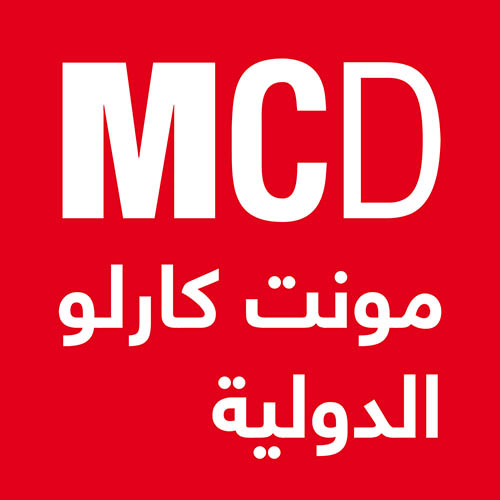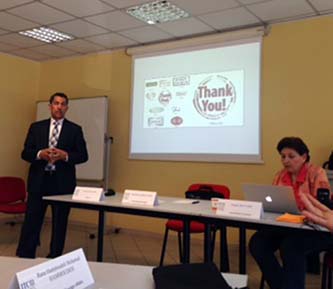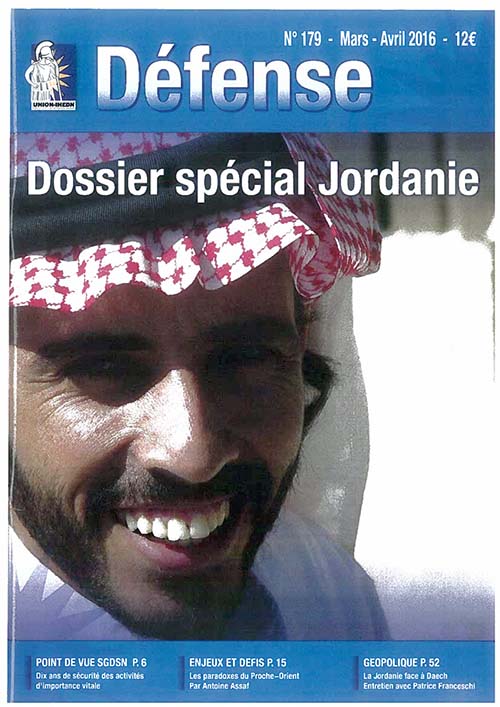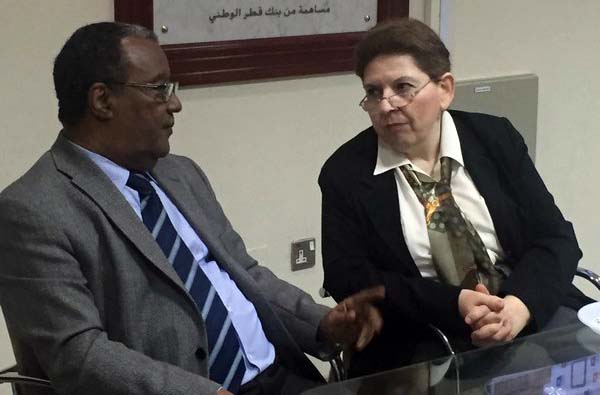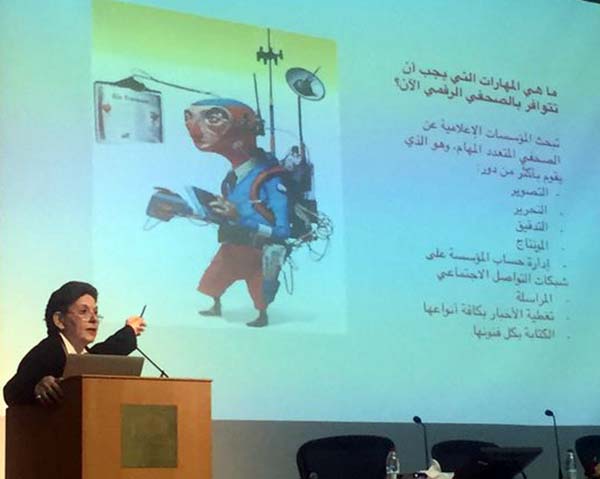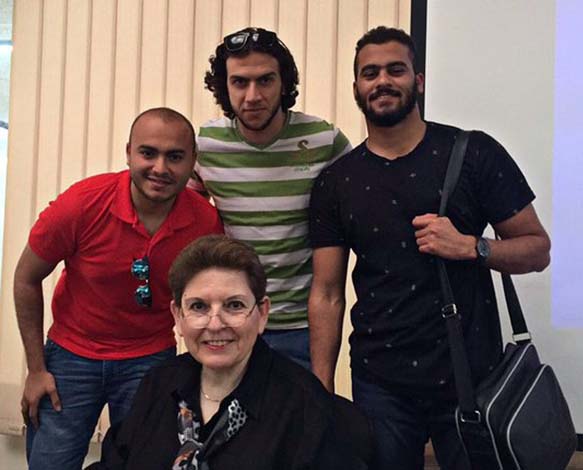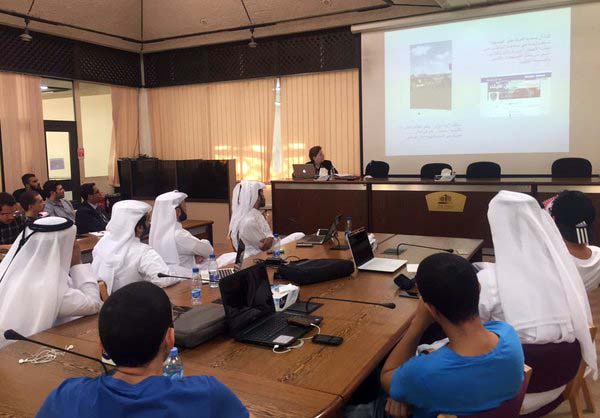A two-day strategic communications workshop helped staffers at the Lebanese American University (LAU) beef up their writing and editing skills by thinking like journalists.

Good writing tips from Magda Abu-Fadil
Media Unlimited director Magda Abu-Fadil put members of the Marketing and Communications (Marcom) team through the paces of researching, reporting, editing, visualizing and engaging through social media in August 2018 to boost the LAU brand across multiple platforms.
She created a newsroom environment simulating fieldwork that requires on-the-scene reporting, shooting pictures and videos, and interacting with newsmakers in their academic world.

LAU’s Marcom editorial team sharpen writing-editing skills
The intense sessions focused on what skills journalists need to operate in a digital-first environment where search engine and social media optimization can determine what news attracts the requisite attention.
The workshop examined the very essence of news and its sources, the key to writing strong leads, fine-tuning quotations, and using contextual details to bolster elements of a story.
Abu-Fadil dedicated a session to media ethics, the need to be mindful of proper sourcing, and how to avoid the dissemination of mis- or disinformation.

The power of headlines
Each session included exercises and quizzes to test participants’ grasp of the topics.
The Marcom staffers also learned how to hone their headline writing skills by using action verbs, word association, quotes from stories, substituting words with punctuation marks, ensuring the story title leads readers into the main text, and optimizing it for search engines and social media.
Abu-Fadil gave trainees a general knowledge quiz, cautioned them about oxymorons, and refreshed their memories on the importance of correct grammar and punctuation, with case studies of common errors as well as good writing examples.

Covering academic news like a professional journalist
Given Marcom’s mandate, participants also worked on the public relations aspect of communication by improving their writing of news releases and how best to pitch stories to various media.
The MU director helped the trainees better craft their coverage of speeches, meetings, and news conferences. She also provided tips on how to write solid feature stories.

The importance of accurate visuals in storytelling
LAU’s campuses in Beirut and Byblos provide an ample supply of events and people to highlight.
An important part of the training included mock TV interviews with staffers acting as reporter and interviewee while Abu-Fadil shot sequences that were later evaluated for strengths and weaknesses.

Trainees go through the paces of on-camera interviews
Equally vital is the use of visual elements like photos, videos, infographics, and illustrations. Trainees sharpened their caption-writing abilities and learned how to turn photo captions into mini-stories.








